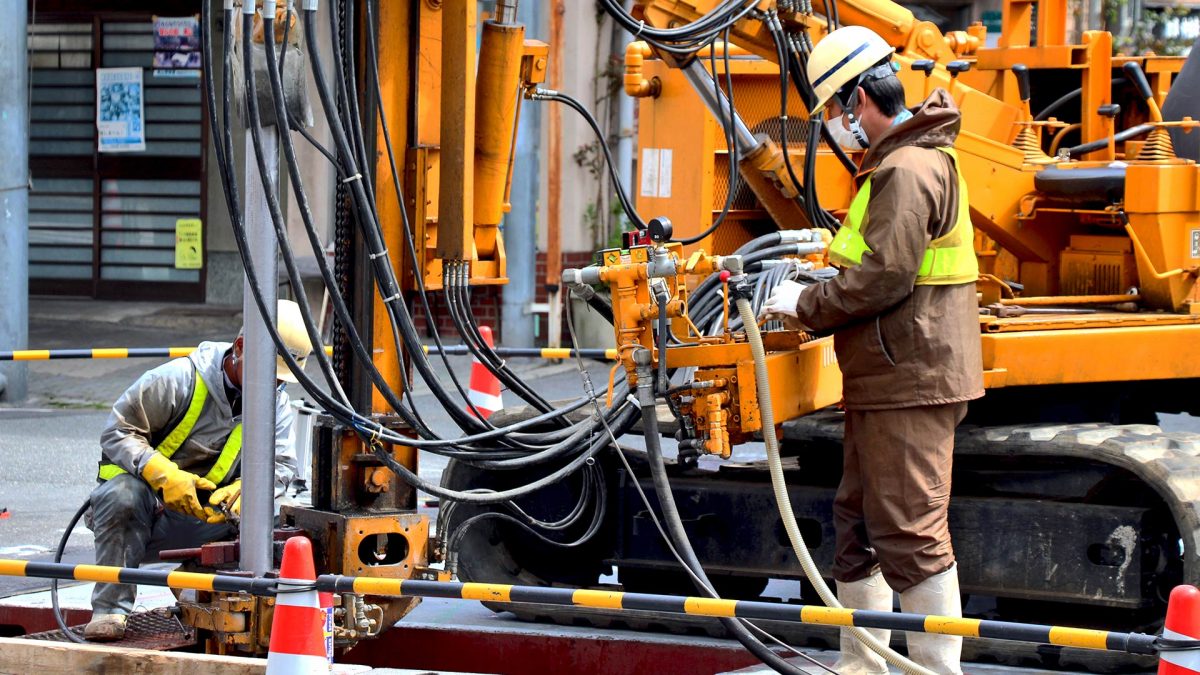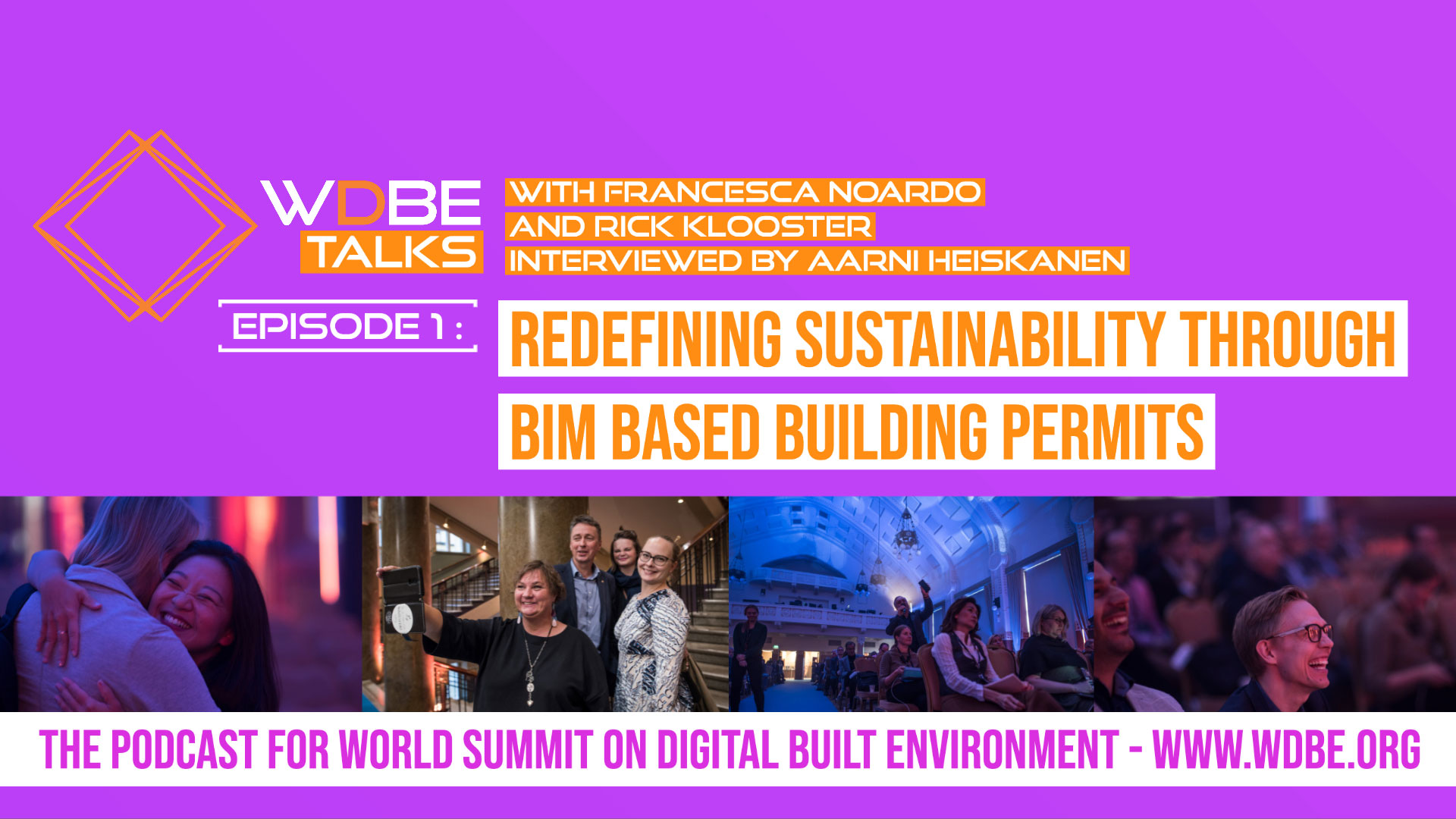As we’re now doing as much work remotely as possible, the value of having digital technologies has become indisputable. I think that today’s experiences will also speed up the adoption of process automation in construction.
Automation needs data. It has to be accessible and in a format that makes it useful. Recently, I’ve talked with experts from Trimble, Aalto University, and Aiforsite about data and how it can be used to improve the performance of construction.
I’m writing articles for Aalto University on research projects about the digitalization of construction. For the article titled On the Way to a Digital Revolution in Construction, I interviewed Jukka Suomi, digital construction manager at Trimble. He talked about what Trimble is doing in the DiCtion (Digitalizing Construction Workflows) R&D project. Trimble is aiming to make data consumption as effortless as possible within the connected ecosystem. BIMs are key elements of Trimble’s vision.
For another article about DiCtion, I interviewed a team of Aalto researchers. They are using a large quantity of video and other data from a construction site of Fira, a Finnish contractor. They’re trying to figure out how to use data to automate construction processes in the future.
The third example of construction data comes from our client Aiforsite. They use machine vision for various purposes. You can watch a short video that explains use cases for AI in construction and demonstrates Aiforsite’s solution. The company typically collects 40-45 gigabytes of data every week from each site.
PS.
I attended a high-rise construction workshop of the Building 2030 consortium in March. Check out my report How to Make High-Rise Construction Perform Better.
From AEC Business
Study: Construction Organizations with the Highest Levels of Trust Perform Twice as Well on Crucial Business Metrics
Autodesk, Inc., in partnership with management consulting firm FMI Corporation, released the results of an industry study. It shows that higher levels of trust within organizations and across project teams correlate with increased profit margins, employee retention, and repeat business that can all add up to millions of dollars of profitability annually.

6 Months of Free Access to WeBuild Construction Software
Director and Co-founder of WeBuild, Jason Kamha: “We’re pleased to release our support package to help those businesses who can benefit from our technology. Until 30 August 2020, all new subscribers will receive six months of free access to our online platform. This offer applies to all WeBuild products.”

From Our Columnist: The Unthinkable Has Happened. How Should Contractors Respond?
Bruce Orr, the CEO of ProNovos, chatted with Dr. John Killingsworth, a construction management professor at Colorado State University who has conducted extensive research on how contractors can weather economic downturns.

From Our Columnist: Do We Need Blockchain in Construction?
In her AEC Business column, Cristina Savian, the founder and managing director at BE-WISE, writes about blockchain technology and interviews Belinda Hodkinson about how Australia embraces it.

Digitalizing the Building Permit Process
In this podcast episode, I speak with Francesca Noardo and Rick Klooster who gave presentations at this year’s first WDBE pre-event which took place in Tallinn, Estonia. The event was about BIM-based Building Permit Process Automation. The event recording is available at wdbe.org.
Other News
Technological advancements disrupting the global construction industry
This is an interesting construction technology white paper by Ernst & Young, co-authored by Eric Ottinger, Harshit Minglani, and Mark Gibson. The research provides a high-level overview of the technology landscape and potential future state of the construction industry. It is the first of a series of papers.
According to the paper, only 25% of real estate and construction firms have a digital strategy and only 9% feel as though they are prepped for a total digital transformation.
How prefab can enable the design and construction industry to bring much needed beds to hospitals, faster
Amy Marks, Head Of Industrialized Construction Strategy & Evangelism at Autodesk, wrote this interesting and timely article. Healthcare is already ahead of other sectors in adopting prefabrication—and wider uptake could help the industry deliver much-needed beds, and faster.
Can the circular economy make construction more sustainable?
Only 9% of the world is circular and carbon emissions and material use have consistently maintained an upward trend. Circulation in construction has has both ecological benefits and a business case.
Oslo’s first zero-emissions construction site in action
Local authorities in Oslo have stipulated that all public buildings must be built with fossil-fuel-free construction machines.
Trimble’s SiteVision Turns Your Phone Into an Augmented Reality BIM Coordination Machine
Shane Hedmond of Construction Junkie writes about Trimble SiteVision, which combines an Android smartphone with special hardware to enable 1 cm accuracy for augmented reality. In addition to the ability to overlay BIM models onto the jobsite, users can also log clashes and omissions, take quick distance measurements, take geo-referenced pictures, assign tasks, and measure grade and cut/fill.
What It Takes to Run a Great Virtual Meeting
I’m sure that by now everyone has experience of virtual meetings that were not so great. In this Harvard Business Review article, Bob Frisch and Cary Greene share 12 tips on making virtual meetings better.
Innovation in construction falls to the lowest level since the credit crunch
What we need now is innovation in the construction sector. Unfortunately, the number of UK companies in the construction sector who say they are actively innovating has fallen from 44% to 30% in the last two years. Is this perhaps a global trend? Maybe not.
Are coworking spaces doomed?
We had our previous office in a co-working space. It was kind of handy, but the benefits were not perhaps as great as we expected. The pandemic has made many people question if the model is feasible in the future as this article by Julia Neuman illustrates.
After coronavirus: The office of the future is the office of the past
This article accompanies the previous co-working space discussion nicely. It states: “Wider corridors with one-way foot traffic, better air filtration, touchless elevator controls, antimicrobial materials in new construction and videoconferencing, even within the office, to avoid the conference room.”



Responses